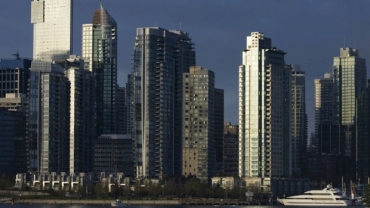Commercial property is booming in the UK, and annual property investment has hit £42 billion in the first quarter of 2014, the highest level seen since the peak before the recession in 2007, figures from Real Capital Analytics (RCA) , a research firm show.
There are a number of coexistent factors behind the boom, not least the fact that investors now seem obsessed with London property. Quantitative easing combined with low returns on both equities and bonds has caused the low interest rate environment which has seen investors scrambling in an attempt to find new sources of yield. Property looks like it could be a good bet, and the UK is traditionally politically stable, it’s economy is recovering and it’s capital city, London, is a truly global City. As a result of this, internationally mobile capital is pouring into the country.
Institutional investors such as pension funds and insurance companies are battling sovereign wealth funds for the capital’s commercial properties, driving prices even higher.
There has been an 11 per cent year on year increase for asset prices, according to RCA and Property Data, whilst yields have been falling sharply.
Over 75 per cent of the money spent in the London market in the first quarter of this year came from international buyers, according to figures from Cushman and Wakefield.
Indian property company Lodha’s 2013 £300 million acquisition of the Canadian embassy building in Grosvenor Square has stood out as a particularly prominent purchase, as has Chinese developer Greenland’s purchase of the Ram Brewery site in Wandsworth, South London, for £600m. Both purchases raised eyebrows amongst seasoned property experts.
At the turn of the year, experts witnessed two record-breaking transactions which further exemplified the current trend: Singaporean sovereign wealth fund GIC purchased a 50 per cent stake in the Broadgate office complex for over £1.7 billion; and St Martins, a property company from Kuwait spent a similar amount to acquire the More London estate. Both set price new records for the London property market.
Some of Britain’s most seasoned property investors are now seizing the chance to shed assets and free up cash. Big listed companies such as British Land and Land Securities have shifted to become net sellers in the past 6 to 12 months for the first time since 2009.
It is certainly a sellers market at this moment in time. Rupert Snowden, property expert at Innovo Property investment, explains why this is not necessarily a good thing.
“When we see a country’s property market becoming dominated by sellers, with a lack of willing buyers, it can often be caused by a lack of belief in the value of said property market. Many Brits do not think it is worth shelling out the huge sums demanded for property in London and the South East and therefore, of the small amount of buyers that are actually still interested in British property, the majority, are foreign nationals.
“When this becomes a problem, is when British citizens are unable to purchase property in their country’s capital city because of the exceedingly over-inflated prices that have come into being in the past few years.
“Whilst it may still be a sellers market at the moment, once people begin to realise that the massive rise in house prices affects them and their finances negatively, I expect to see a small but not insignificant decline in prices. Many experts think that this will happen around the beginning of 2015, although of course, so far this is all speculation.”
Bradley Shore is a trave; and investment writer, he likes to share his knowledge to his readers through his informative article. his favourite category of writing woul be travel related investments. Visit his twitter page for more articles by Brad.

